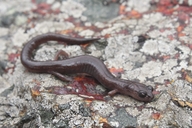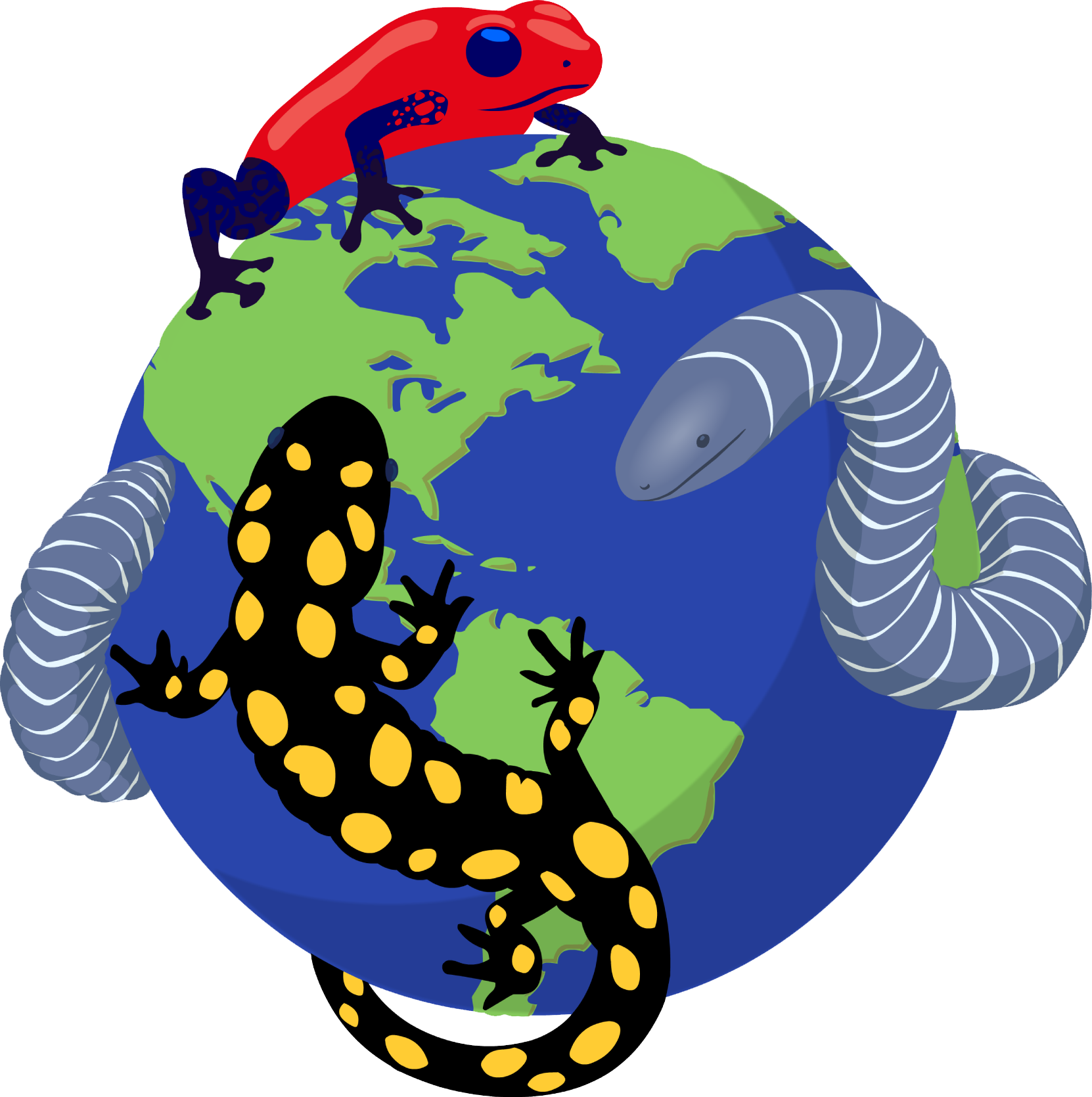|
Description
This is one of the largest species of the genus and reaches nearly 70 mm in snout vent length (up to 130 mm total length). It is relatively robust for this genus and has a broad head and long limbs. Eyes are relatively large and protuberantThere are 18 20 costal grooves, and 5.5 to 8 intercostal folds are left uncovered when the limbs are appressed to the body. The tail is relatively short for the genus and often does not exceed snout-vent length. Hands and feet are moderately large for the genus, and have four digits each. The coloration is generally dark gray to gray black with a subdued dorsal stripe that is more prominent in smaller individuals. There are some yellow to yellow-green highlights in the dorsal stripe of some individuals but usually there is little color other than grays and browns. The venter is significantly paler than the dorsum. There are small white speckles along the sides but they are not prominent.
Distribution and Habitat
Country distribution from AmphibiaWeb's database: United States U.S. state distribution from AmphibiaWeb's database: California
This species occurs only on the northern Channel Islands, located south of Santa Barbara and west of Ventura, California. The species is locally abundant on all of these islands (San Miguel, Santa Rosa, Santa Cruz, West Anacapa, Middle Anacapa, East Anacapa), and is found in diverse habitats, including oak woodland, grassland, chaparral and coastal sage scrub. It has been found under driftwood on beaches and is commonly found under rocks, wood and debris. It is active in the moist winter months only.
Life History, Abundance, Activity, and Special Behaviors
Little information is available concerning life history of this species, but it is probably very similar to its close relative Batrachoseps major from the mainland of southern California.
Trends and Threats
Much of the range of the species is included in protected areas, in particular the Channel Islands National Park. However, several of the islands have been severely overgrazed in the past and grazing continues on some of the western islands. Furthermore, introduced pigs have severely damaged habitat on Santa Cruz Island and pigs doubtless eat salamanders when they encounter them.
Possible reasons for amphibian decline Intensified agriculture or grazing
Predators (natural or introduced)
Comments
Until recently populations from the mainland were included as subspecies of this species, but recent biochemical work (Wake and Jockusch 2000) combined with earliler morphological analyses (Brame and Murray 1968) have led to changes in classification and the species now is restricted to the northern Channel Islands. A population refered to B. nigriventris is sympatric with this species on Santa Cruz Island.
See another account at californiaherps.com.
References
Brame, A. H., Jr. and Murray, K. F. (1968). ''Three new slender salamanders (Batrachoseps) with a discussion of relationships and speciation within the genus.'' Bulletin of the Los Angeles County Museum of Natural History, (4), 1-35.
Wake, D.B. and Jockusch, E.L. (2000). ''Detecting species borders using diverse data sets: examples from plethodontid salamanders in California.'' The Biology of Plethodontid Salamanders. R. C. Bruce, L. D. Houck, R. G. Jaeger, eds., Kluwer Academic/Plenum Publishers, New York, NY, 95-120.
Originally submitted by: David B. Wake (first posted 1999-04-12)
Edited by: Vance T. Vredenburg, Joyce Gross (2008-01-13)Species Account Citation: AmphibiaWeb 2008 Batrachoseps pacificus: Channel Islands Slender Salamander <https://amphibiaweb.org/species/3945> University of California, Berkeley, CA, USA. Accessed Jun 5, 2025.
Feedback or comments about this page.
Citation: AmphibiaWeb. 2025. <https://amphibiaweb.org> University of California, Berkeley, CA, USA. Accessed 5 Jun 2025.
AmphibiaWeb's policy on data use.
|





 Raffaëlli Account
Raffaëlli Account Map of Life
Map of Life